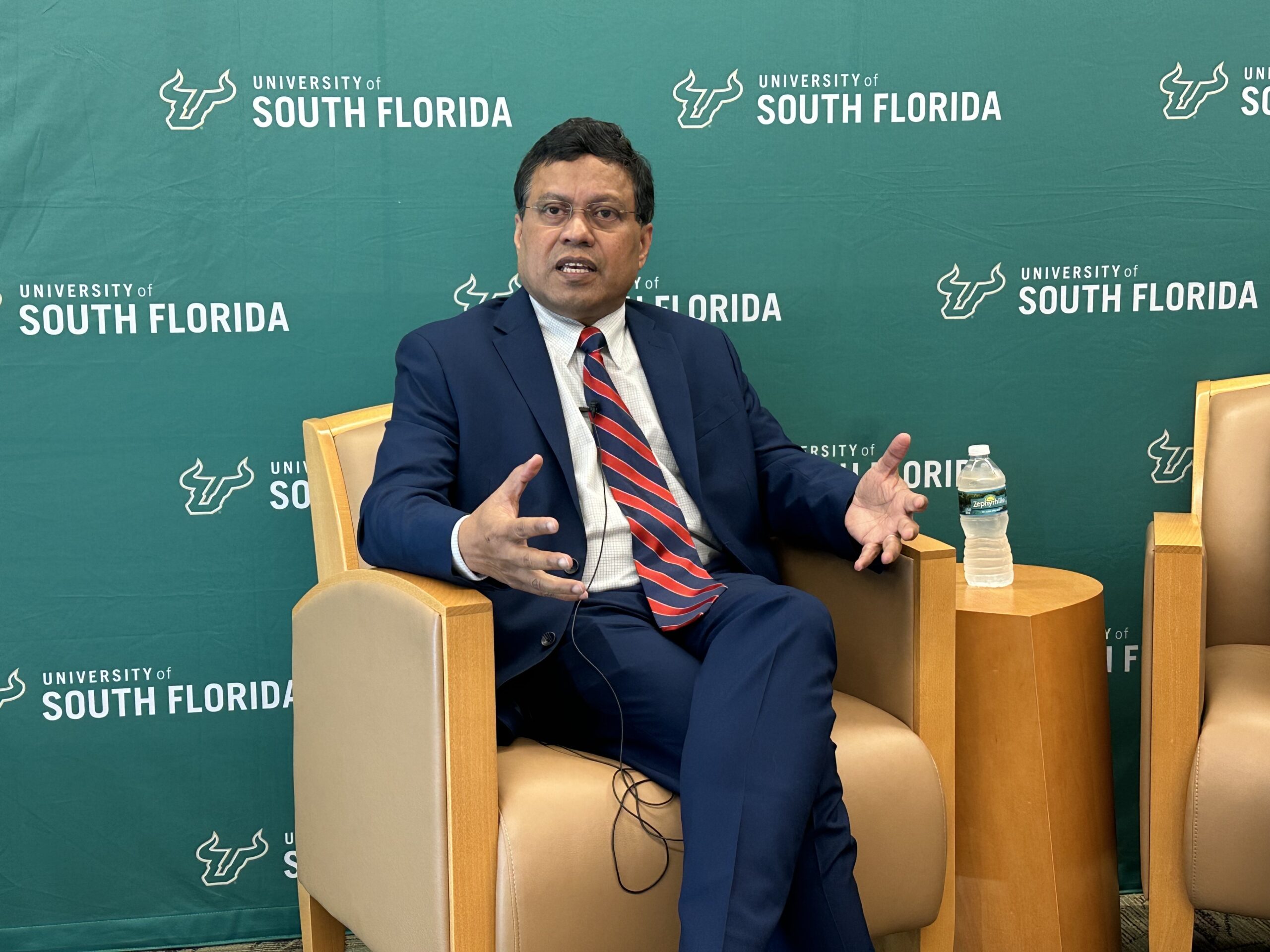Mohapatra leans on past experience in provost search town hall

Prasant Mohapatra, vice chancellor for research at the University of California, Davis, visited the Tampa campus for a town hall event on Wednesday, where his goals for USF appeared to be rooted in policies and experiences he found to be useful at his current place of employment.
The event saw about 15 people attending in person and 138 people online. Mohapatra, who visited the St. Pete and Sarasota-Manatee campuses on Tuesday for town halls, arrived almost 10 minutes after its scheduled start time of 10 a.m.
Technical difficulties occurred for online attendees as the livestream initially had trouble starting, but the issue was resolved about 10 minutes into the town hall and attendees were able to rejoin.
When speaking on the provost’s role in ensuring a high-quality student experience, Mohapatra said the university needs to evolve and avoid getting caught in outdated procedures.
“The student world is changing. Student needs are changing,” he said.
“The learning modalities have changed and the pandemic added a different dimension to that, so we cannot say we are resilient to all that – we have to be more adaptive to some of these new trends. We have to make the curriculum also more adaptive to the career needs of the students… As an institution of higher learning, we have to be adaptable in order to go through and embrace those changes.”
As a computer science professor, Mohapatra focused some of his goals for the university on technology as a valuable asset. For example, he said it could be used to reduce wait times for operational units like Human Resources or improve communication across all three campuses.
However, Mohapatra also acknowledged the areas in which technology can be risky to rely on. He said that while creating an inclusive culture at USF is a priority of his, technology can sometimes interfere with that goal if it is not handled with caution.
“One of the barriers is those biases,” he said. “When you are embedding more and more technology, if you’re not careful enough, you will be introducing biases through those technologies in there.
“In our [UC Davis] procurement processes, since all the engines that are used in vendor selections are based on some artificial intelligence models, we are required to provide evidence that we are not making it biased and not discriminating against small businesses or minority-owned businesses. So those things will pop up once you adapt and embrace more technology.”
When looking ahead to the future of OneUSF, Mohapatra said he was on board with recent consolidation efforts for the three campuses. However, he also mentioned he wants each campus to identifiably remain unique.
“Ideally, what I would like is [to] view that as one university that is just geographically located in different places, and to have that kind of a seamless integration,” he said. “So that whether you are a faculty in Tampa or St. Pete, it doesn’t matter if you are pursuing your own work in whatever areas that you specialize in.
“The nice thing about the smaller campuses is you need to provide them space… [let them] develop some kind of unique identities. Reflecting from my prior experiences, we [UC Davis] have a couple of smaller campuses, much smaller than what you have. One of our campus establishments is Bodega Bay Marine Lab, which is right on the water. So, if you are studying marine sciences over there, people know [they] need to be working in that campus.”
Mohapatra said one of the most important aspects of strengthening the university’s competitive edge is by focusing on faculty recruitment and retention. This, he said, will hopefully build a healthy future not only for the status of the university, but for those working and growing their careers.
“We need to really work hard in not only attracting the top faculty in recruitment but also making sure that you retain them,” he said.
“So we have to make sure that we go really aggressively to get the top quality faculty members and then create an environment [to where] that they think is the best place to stay and build up their career.”







